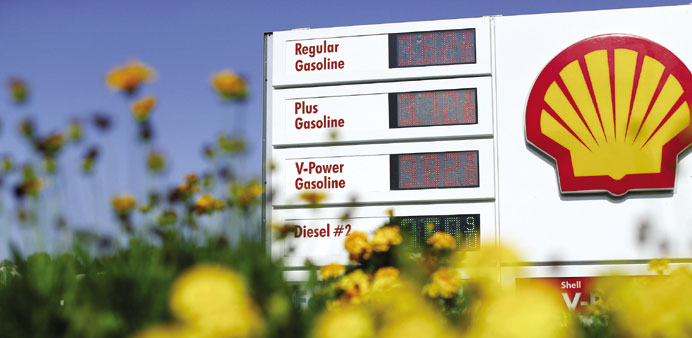Royal Dutch Shell yesterday reported a hefty $8.2bn charge, equivalent to around 5% of its market value, due to write-offs on projects in the Alaskan Arctic and Canada as Europe’s biggest oil producer grapples with weak oil prices.
The oil major’s third-quarter current cost of supplies earnings, the company’s definition of net income, came in at $1.8bn, below analysts’ expectations of $2.74bn and 70% lower than a year ago.
“In headline terms, this was a challenging quarter,” said Shell Chief Financial Officer Simon Henry in a video statement.
However, Shell’s bumper $70bn deal to acquire smaller gas-focused rival BG Group remained on track for completion early next year, it said, as it awaits regulatory approvals from China and Australia.
“The underlying performance does give us confidence to capture the significant value that is available in the BG combination and over time we will deliver that value back to shareholders,” Henry said.
Shell’s $8.2bn charge included a $2.6bn write-off due to its withdrawal from the Alaskan Arctic, as well as an additional $2bn charge made on the Carmon Creek oil sands project in Canada, which the company suspended on Tuesday. It also reflected other impairment charges of $3.7bn triggered by the downward revision of the long-term oil and gas price outlook, Shell said.
Shell’s upstream oil and gas production division, swung to a loss for the first time in years. Its downstream refining and marketing division, however, benefited from weak prices to run refineries more profitably, with its net income up 46% at $2.6bn.
“It’s a rather messy set of results, but it’s what I expected given some of the portfolio steps they have taken and it cleans up the balance sheet in advance of the BG merger,” said Jason Gammel, oil and gas equity analyst at Jefferies.
More information on Shell’s strategy is expected at next Tuesday’s management day briefing.

